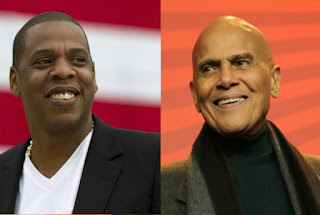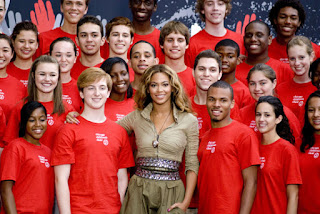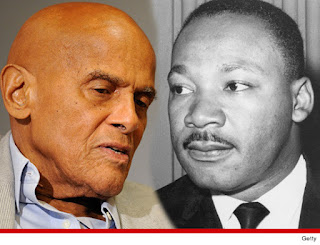 These are the three principles I learned and taught during my 32 years working with high school students.In my earlier blog, regarding what ought to be taught during Black History Month, I discussed how segregated cities evolved into ghettos during the Second Migration of African Americans in the late 1960's,and why they cycle of poverty and segregation continues today. Despite the efforts of President Obama's largely successful economic policies, from Chicago's South Side to East St. Louis to Baltimore and all cities in between, the new 'urban underclass' remains changed and in harm's way, and the headlines scream that it has only gotten worse.
These are the three principles I learned and taught during my 32 years working with high school students.In my earlier blog, regarding what ought to be taught during Black History Month, I discussed how segregated cities evolved into ghettos during the Second Migration of African Americans in the late 1960's,and why they cycle of poverty and segregation continues today. Despite the efforts of President Obama's largely successful economic policies, from Chicago's South Side to East St. Louis to Baltimore and all cities in between, the new 'urban underclass' remains changed and in harm's way, and the headlines scream that it has only gotten worse. So rather than rehash the crime statistics, the homelessness, and the drug epidemic, I wondered if I could at least make some headway into how these cities and its occupants can be resurrected. I use that term because a miracle of enormous economic proportions is needed to break the cycle of poverty and hopelessness. For most of the people living in these neighborhoods 'Hope' is only on a poster with former President Obama's face on it, withering away on the side of the building they lean against.
"A child born without parents is like a child born without skin." Let's begin with the children. As I wrote earlier, far too many black men are interned in prisons. Far too many children do not have a home with both parents there for them. President Obama's message to young, black men to take responsibility may take root, but with poor a education, skills associated with low skill employment, and financial barriers that make it difficult if not impossible to establish credit or gain loans for self-starting businesses, only the very few lucky, highly talented men and women make it out.

"Your 'I Will' is more important than your IQ." This attitude alone can only take someone so far. Witness the author and producer of the recent film Moonlight. Both came from Liberty City, the segregated enclave in Miami, in which they grew up, both fatherless and with mothers who were crack addicts. It took others, to see their potential and save them. Tarell Alvin McCraney eventually earned his way to the Yale School of Drama, and his producer Barry Jenkins graduated from Florida State University and produced various films until his breakout film Moonlight. They are the 'Outliers' as Malcolm Gladwell would put it. They made it out of Liberty City, but heroically, they have written about exactly how difficult it was...and still is.
That brings me to my third principle: "Follow the Money." Watching the Chris Hayes MSNBC special "Chicago in the Crosshairs," I could feel the anger of the town hall bubbling up every time the subject of money came up. Federal assistance is too limited. The city itself is underfunded,.The suburbs are where the tax base is high, and the money flows freely to its schools and those suburbs' coffers. Students cannot cross district lines so the rich suburban schools, and the 'upper class' neighborhoods are as distant as Dr. King's 1963 dream for these people."So it comes as no surprise that a new report from the U.S. Department of Education documents that schools serving low-income students are being shortchanged because school districts across the country are inequitably distributing state and local funds."
So...Can inner city poverty be resurrected?
According to a recent National Bureau of Economic Research study, “For poor children, a twenty percent increase in per-pupil spending each year for all 12 years of public school is associated with nearly a full additional year of completed education, 25 percent higher earnings, and a 20 percentage-point reduction in the annual incidence of poverty in adulthood.” And a 2014 study of Massachusetts school districts found that school finance reforms that increased state funding and directed more of it to the highest-need districts “led to a substantial increase in student performance across all districts.” Ah ha! So money can make a significant difference in a child's future! Nevertheless, schools are getting shuttered on the South Side of Chicago, in some cases because of low enrollment; and as a result, children get shipped to other inner city schools. Inevitably, some students find themselves on another gang's turf, and then the newspapers do what they do best. They follow the blood, as we know too well: "If it bleeds it leads."
There are some opportunities for business there. Some. In 1995 the Harvard Business Review Micheal J. Porter did a lengthy piece on the subject. "One approach would be for both federal and state governments to eliminate the tax on capital gains and dividends from long-term equity investments in inner-city-based businesses or subsidiaries that employ a minimum percentage of inner city residents." But that did not happen. Porter even then acknowledged:: "The sad reality is that the efforts of the past few decades to revitalize the inner cities have failed."
So again I ask: Where is the money? Two places I recently noticed.
"The United States has finalized a $38 billion package of military aid for Israel over the next 10 years, the largest of its kind ever, and the two allies plan to sign the agreement on Wednesday, American and Israeli officials said." And add to that the Trump administration's original estimate for the cost of building a wall between the USA and Mexico now is estimated at 21 billion dollars.
Well, that's a lot of money. I'm sure that could go a long way to starting investments in America's inner cities..
Fat chance.
So that brings me to Harry Belafonte and Jay Z
 In 2012 , Harry Belafonte spoke about modern celebrity and social responsibility. Belefonte, an icon of the Civil Rights Movement and a fundraiser for Dr. King's Birmingham march protests, had this to say, “I think one of the great abuses of this modern time is that we should have had such high-profile artists, powerful celebrities. But they have turned their back on social responsibility. That goes for Jay Z and Beyoncé, for example.”
In 2012 , Harry Belafonte spoke about modern celebrity and social responsibility. Belefonte, an icon of the Civil Rights Movement and a fundraiser for Dr. King's Birmingham march protests, had this to say, “I think one of the great abuses of this modern time is that we should have had such high-profile artists, powerful celebrities. But they have turned their back on social responsibility. That goes for Jay Z and Beyoncé, for example.” According to Elliot Wilson, "Jay Z fired back in 2013, 'This is going to sound arrogant, but my presence is charity. Just who I am. Just like Obama’s is.' He even dissed Belafonte in a song, saying, 'Mr. Day-O, major fail.' But it seems the two have finally buried the hatchet." However, the money is still the issue because Jay Z was indeed ridiculed by many that 'just showing up' is simply not acceptable. It incurred the wrath of Kelly Goff columnist for The Root. She told MSNBC's Richard Lui, "Belafonte's contribution to history and equality is greater than Jay Z's will ever be." Beyonce Knowles Carter and Jay Z's monetary contribution to promote civic responsibility was, in her mind, lacking. She cited Jay Z's philanthropic efforts in 2010, in which he made $63 million but "he gave about $6,000 to his own charity." She concluded, "Harry Belefonte is someone who helped fund the freedom rides. He's the reason I can sit at this table with you all today because he helped fight for equality."
 To be fair, the power couple keeps much of their charity work hush-hush. But Beyonce's $7 million contribution in 2007 to her hometown of Houston for 47 families displaced by Katrina was exactly what was needed. Her $4 million donation for drug rehabilitation center called Phoenix House in 2009 was another example of goodwill. And speaking of Goodwill, she worked with that organization to donate clothing also in 2013. Meanwhile, in 2003, Jay Z's foundation gave $3 million in college scholarships. In addition, Haiti and Nepal have received attention from the couple during their respective disasters. Jay Z recently bailed out dozens of protesters in Baltimore during the Black Lives Matter protests. Some of this has come to light because of Belafonte's push for them to make their contributions known.
To be fair, the power couple keeps much of their charity work hush-hush. But Beyonce's $7 million contribution in 2007 to her hometown of Houston for 47 families displaced by Katrina was exactly what was needed. Her $4 million donation for drug rehabilitation center called Phoenix House in 2009 was another example of goodwill. And speaking of Goodwill, she worked with that organization to donate clothing also in 2013. Meanwhile, in 2003, Jay Z's foundation gave $3 million in college scholarships. In addition, Haiti and Nepal have received attention from the couple during their respective disasters. Jay Z recently bailed out dozens of protesters in Baltimore during the Black Lives Matter protests. Some of this has come to light because of Belafonte's push for them to make their contributions known. It's a start.
The point is that the inter-generational tiff between the civil rights activists of yesteryear and the well heeled black upper class of yesterday who have benefited from the sacrifices of their iconic heroes needs to be ended. All parties need to rally because of one simple fact: the struggle of slavery is not over. Discrimination is not over. Poverty is far from ended. Educational disparities are not solved. And if the system, even under America's first black President of the United States cannot turn the tide, then it is incumbent for these who have found the American Dream to reach back to their roots, to the inner cities they came from, to the poor, dispossessed people whose skin color has defined them unfairly, to take action. That means they must do what Academy Award winner Cuba Gooding, Jr. so passionately demanded::"Show me the money!"
 The situation will only get worse. Automation and technology will displace more and more people from their jobs. The wealth gap will grow, and the only thing that can alleviate this problem is the resources so desperately needed in inner city schools. We have always known that education is the long term answer. But in the short term, nutrition, housing, a black gentrification of the inner cities, including job training and a push for businesses to not pay capital gains taxes, is the next best hope to make the millennial generation and their children "free at last, free at last."
The situation will only get worse. Automation and technology will displace more and more people from their jobs. The wealth gap will grow, and the only thing that can alleviate this problem is the resources so desperately needed in inner city schools. We have always known that education is the long term answer. But in the short term, nutrition, housing, a black gentrification of the inner cities, including job training and a push for businesses to not pay capital gains taxes, is the next best hope to make the millennial generation and their children "free at last, free at last."...and then we can start to work on the poverty in the rust belt because poverty and drugs are not unique to any particular pigment of skin.















